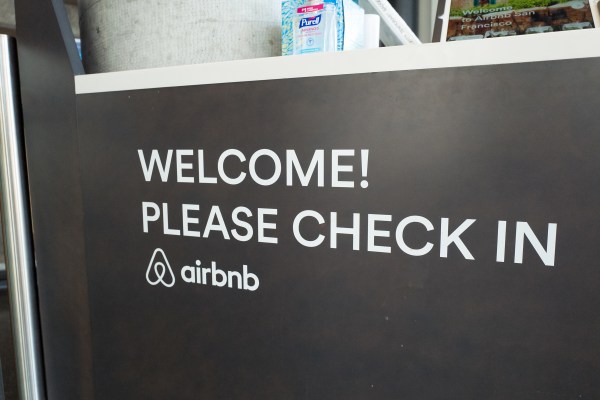Airbnb doubles down on flexible search, improves the host flow in preparation for summer 2021 - 4 minutes read

As we head into the summer of vaccination, travel is bound to start bouncing back from the lows of 2020, and Airbnb is betting it will look very different than it did in the pre-COVID era.
The home-sharing platform has introduced some big changes, across a wide variety of feature sets, that focus on flexibility for the guests and simplicity for the hosts. The end goal, according to Airbnb Head of Guest Experience Sam Shank, is to increase both the volume and diversity of the supply side of the operation.
To start, Airbnb has streamlined the process of becoming a host, minimizing the amount of steps it takes to get a listing up. Machine learning algorithms can also now automatically arrange photos based on guest appeal, and hosts are provided suggestions from Airbnb about the best titles and descriptions for their listing.
Image Credits: Airbnb
The company is also adding new layers of data to the system, integrating with publicly available real estate data, so that hosts can simply enter their address and have information like number of bedrooms and bathrooms automatically filled in.
Other improvements to the hosting experience include a redesigned “Welcome to Hosting” hub, and a new Today tab that helps hosts keep track of new messages, tasks, etc.
On the guests side, Airbnb is doubling down on features around flexibility.
In February, for example, the company introduced flexible date search, letting people search for listings based on the type of trip, rather than the dates. Users can now search for a long weekend, a week-long trip or a month-long trip.
Today, Airbnb announced that it is making its search product even more supple with “Flexible Matching” and “Flexible Destinations.”
Flexible Matching essentially adds wiggle room to a more specific search. For example, if a user searches for listings under $250/night, it might show listings that fit all other criteria but are priced slightly outside of that range. Or, if a user searches for a certain set of amenities, it might show a listing that’s only missing one.
Flexible Destinations allow a user to search for a certain type of listing regardless of the location. Think treehouses or beach-side properties.
Image Credits: Airbnb
Combined, this type of flexible search will expose guests to a much more diverse pool of listings, and the updated hosts flow is expected to increase supply in some of these less explored destinations.
“Brian [Chesky] said we have the right amount of hosts for this summer, but also that we have the capacity to add millions of hosts,” said Shank, explaining that changing how people find places expands their search to more diverse supply.
“If you were boiling down one big theme, it’s really around helping us get more diverse, unique supply and helping more people become very successful at being hosts, and recognizing the benefits of that,” said Shank. “There are financial benefits and also the chance to meet people from around the world.”
Alongside flexible search updates and the improved host flow, Airbnb is also making upgrades to its community support department, doubling the number of support agents available on the phone this summer and expanding support coverage from 11 to 42 languages. The company has also redesigned the Help Center, with easier navigation, for both hosts and guests.
All told, this release includes more than 100 updates to the product.
Much of it was informed by Airbnb’s 2021 trend report, which showed that families both drove and diversified travel through the summer of 2020, with family travel growing from 27% of nights booked to 33% in the summer of 2021 globally. Of family travel, 42% of the nights booked were in rural destinations, which is up 10 percentage points from the summer of 2019.
The company’s work to expand its listing supply is not surprising given that it is now a public company, giving it a slightly less-forgiving investor pool to impress on a quarterly basis. Airbnb survived the COVID-19 pandemic better than some expected, thanks in part to users booking long stays while they quarantined. But now Airbnb needs to lead its industry into the post-COVID world if it wants to not only defend its market position, but also the very growth rates that helped it become the well-known brand that it remains today.
Of course, onboarding more hosts with more automated tooling opens the door to quality risks. We’ll see how users respond to both more supply and more computer-aided supply generation.
Source: TechCrunch
Powered by NewsAPI.org